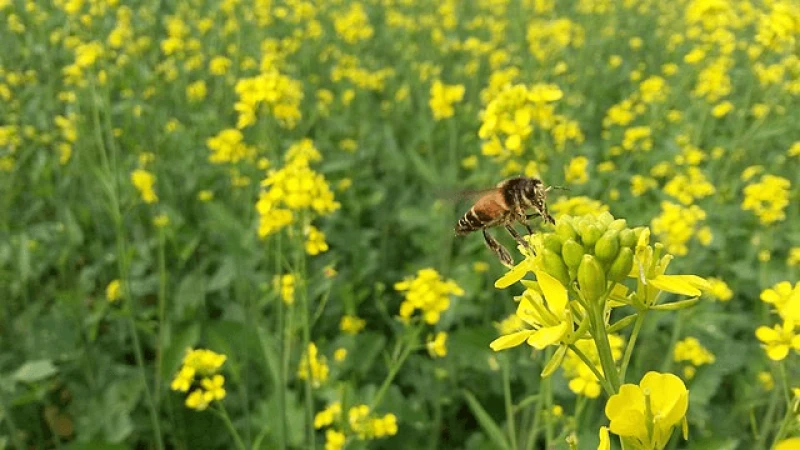Viewpoint: GMO mustard crops newly approved in India enable farmer self-reliance and provide food oil sorely needed for growing population
Viewpoint: GMO mustard crops newly approved in India enable farmer self-reliance and provide food oil sorely needed for growing population


India faces a major deficit in edible oils, with 60% of its demand being met by imports. Mustard is one of the most important edible oil crops in India; however, its per hectare yield is very low when compared to the global average. Thus, increasing the productivity of mustard in the country is vital for the economic well-being of farmers and self-sufficiency in edible oil production.
Using genetic engineering, extensive research has been carried out at the Centre for Genetic Manipulation of Crop Plants (CGMCP), University of Delhi South Campus, to create a GM mustard hybrid, DMH-11 with higher vigour and yield — this will facilitate an increase in domestic production of edible oils as well as enhanced farm incomes.
This advancement will benefit farmers by increasing yield per hectare, also leading to an increase in their incomes. The domestic consumption of edible oils is around 25 million tonnes, while the domestic production of mustard oil was approximately 8.5 million tonnes in the year 2020-21. India’s edible oil imports were approximately 13 million tonnes, which touched ₹1.17 lakh crore in value terms. Cultivation of these GM mustard hybrids developed indigenously could help enhance farmers’ income, reduce the oil-import burden and help achieve much-needed self-reliance in edible oil production.
This is an excerpt. Read the original post here

 | Videos | More... |

Video: Nuclear energy will destroy us? Global warming is an existential threat? Chemicals are massacring bees? Donate to the Green Industrial Complex!
 | Bees & Pollinators | More... |

GLP podcast: Science journalism is a mess. Here’s how to fix it

Mosquito massacre: Can we safely tackle malaria with a CRISPR gene drive?

Are we facing an ‘Insect Apocalypse’ caused by ‘intensive, industrial’ farming and agricultural chemicals? The media say yes; Science says ‘no’
 | Infographics | More... |

Infographic: Global regulatory and health research agencies on whether glyphosate causes cancer
 | GMO FAQs | More... |

Why is there controversy over GMO foods but not GMO drugs?

How are GMOs labeled around the world?

How does genetic engineering differ from conventional breeding?
 | GLP Profiles | More... |

Alex Jones: Right-wing conspiracy theorist stokes fear of GMOs, pesticides to sell ‘health supplements’




 Viewpoint — Fact checking MAHA mythmakers: How wellness influencers and RFK, Jr. undermine American science and health
Viewpoint — Fact checking MAHA mythmakers: How wellness influencers and RFK, Jr. undermine American science and health Viewpoint: Video — Big Solar is gobbling up productive agricultural land and hurting farmers yet providing little energy or sustainabilty gains
Viewpoint: Video — Big Solar is gobbling up productive agricultural land and hurting farmers yet providing little energy or sustainabilty gains Fighting deforestation with CO2: Biotechnology breakthrough creates sustainable palm oil alternative for cosmetics
Fighting deforestation with CO2: Biotechnology breakthrough creates sustainable palm oil alternative for cosmetics Trust issues: What happens when therapists use ChatGPT?
Trust issues: What happens when therapists use ChatGPT? 30-year-old tomato line shows genetic resistance to devastating virus
30-year-old tomato line shows genetic resistance to devastating virus California, Washington, Oregon forge immunization alliance to safeguard vaccine access against federal undermining
California, Washington, Oregon forge immunization alliance to safeguard vaccine access against federal undermining The free-range chicken dilemma: Better for birds, but with substantial costs
The free-range chicken dilemma: Better for birds, but with substantial costs ‘You have to treat the brain first’: Rethinking chronic pain with Sanjay Gupta
‘You have to treat the brain first’: Rethinking chronic pain with Sanjay Gupta
